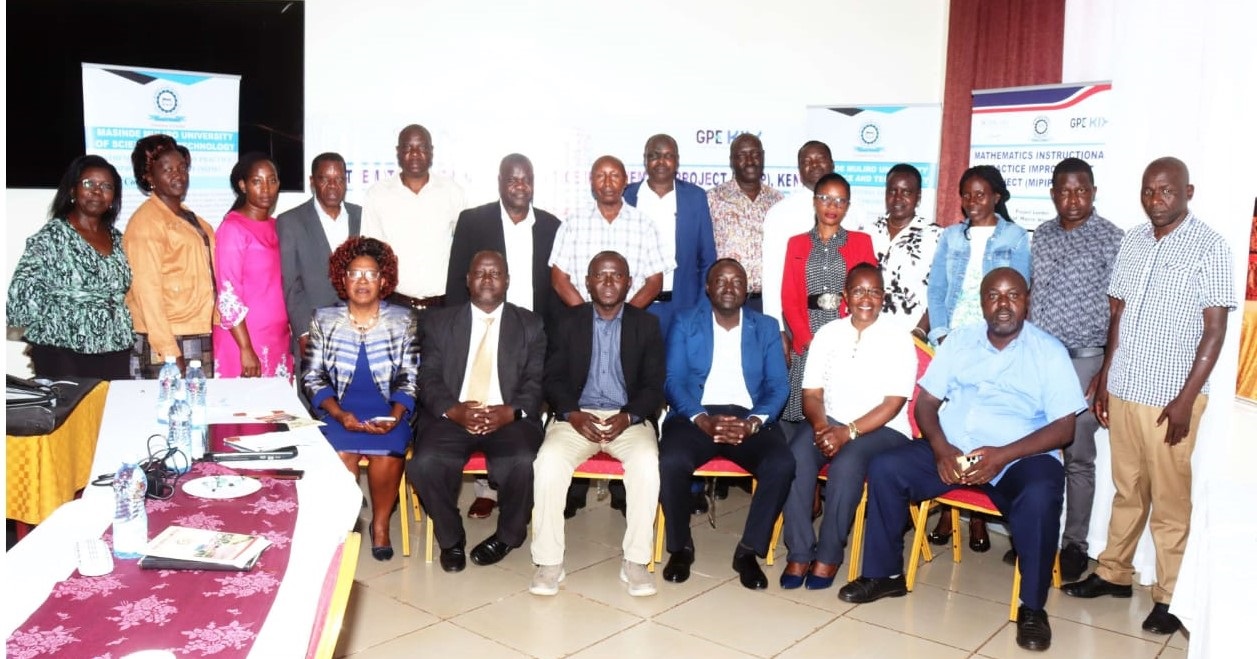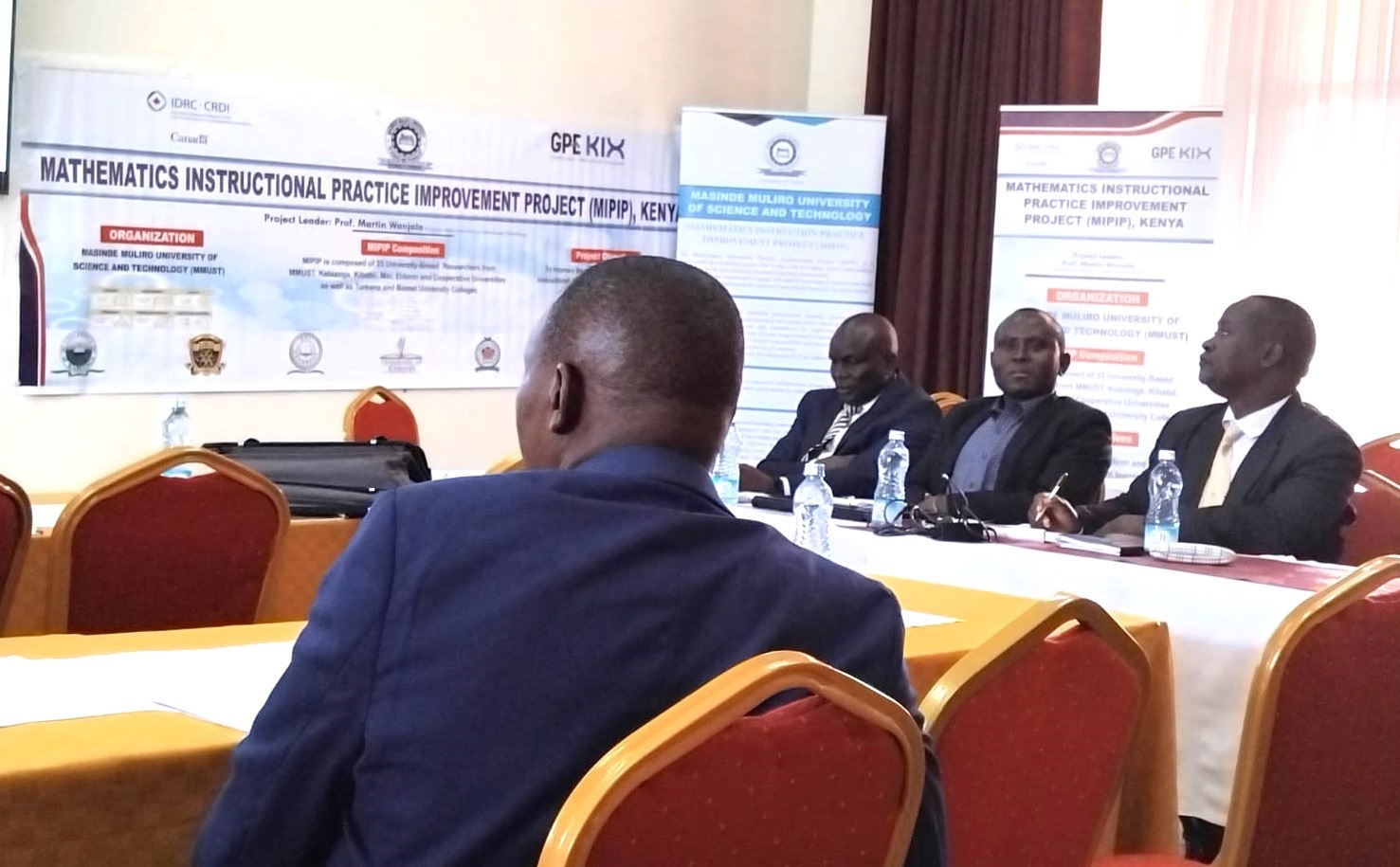In a significant step towards enhancing Mathematics Education, the Mathematics Instructional Practice Improvement Project (MIPIP) was officially launched on September 24, 2024, at a ceremony attended by Educators, Policymakers, and Stakeholders in the education sector. This project led by Prof. Martin Wanjala, is funded by the International Development Research Centre (IDRC) and the Global Partnership Education (GPE) and is aimed to equip teachers with innovative teaching strategies and resources to improve student engagement and transform the performance of students in Mathematics across Kenyan schools. MIPIP brings together 25 researchers from various institutions, including Masinde Muliro University of Science and Technology (MMUST), Kibabii University, Moi University, University of Eldoret, Cooperative University, Turkana University College, and Bomet University College.

Participants after the launch of the MIPIP at Golf Hotel.
Commenting on the project, Prof. Wanjala assured the participants that MIPIP will enhance Mathematics education in Kenya by utilizing data to inform instructional practices and improve student learning outcomes. “The project focuses on three primary objectives: Knowledge generation, stakeholder empowerment, and knowledge mobilization,” he added.
The event featured presentations from various team members, showcasing the progress made towards achieving MIPIP's objectives. Prof. Wanjala emphasized the importance of data-driven approaches in transforming Mathematics instruction, stating that their goal is to create an inclusive environment where every student can thrive in Mathematics, regardless of their background.
The other notable personalities present at the launch included Prof. Francis Orata (Director of Research and Postgraduate Support), who was also representing the Deputy Vice-Chancellor PRI, Prof. Moses Poipoi (Dean, SEDU), Prof. Kennedy Bota (Associate Dean SEDU), Dr. David Barasa (Associate Dean, SASS), Prof. Maiyo- Kibabii University, and Dr. Harrison Bii- University of Kabianga.
They engaged in discussions about the key activities prioritized by MIPIP, such as: Professional Learning Communities (PLCs), Structured Discussions within PLCs to promote continuous learning and improvement, Art Questioning, and sessions focused on analysing learner errors.

A section of the participants at the MIPIP launch.
As MIPIP progresses, the team is committed to mobilizing knowledge and evidence generated through stakeholder engagement. Similarly, plans to expand the network of Mathematics educators and promote the findings beyond the initial study regions were discussed, focusing on scaling the project's impact.
The launch of MIPIP comes in response to alarming trends in Mathematics performance among Kenyan students. MIPIP will create an engaging and supportive environment for Mathematics education. It will address persistent challenges in Mathematics education, including student anxiety, by providing teachers with professional development opportunities and curriculum resources to transform the teaching of Mathematics.
By Linet Owuor





